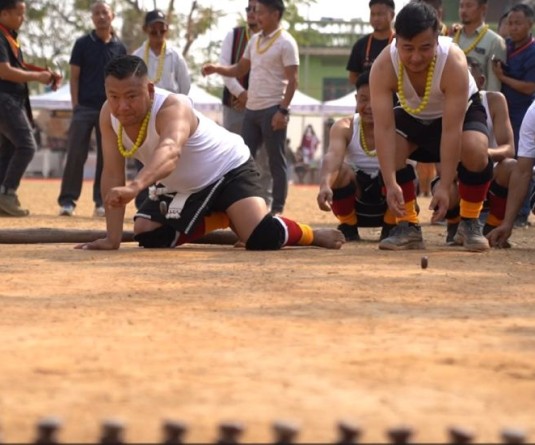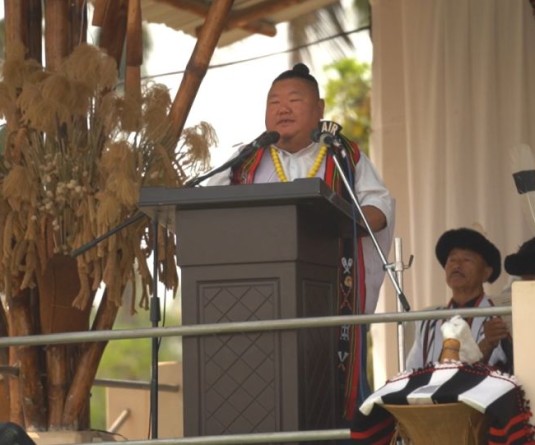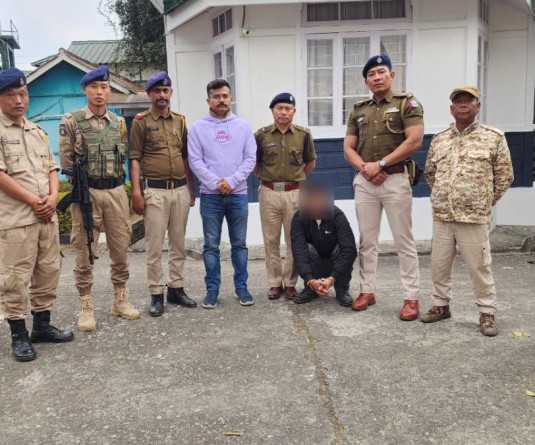
Morung Express
Dimapur | June 8
Results of this week’s The Morung Express weekly poll, ‘Are You Willing to Forgive Your Enemy…for Reconciliation’, reminded of the disturbing shadows that continue to haunt the suffering Naga man and woman. In a small way, the poll testified to the deep trauma Naga people carry today.
The results showed two starkly singular sections expressing two paradoxical paradigms: Those who toed expected Christian ethos as means to ‘healing’ and the other, the more reality-scarred ones – those who have experienced unwarranted death and suffering and for which they felt Justice must be established first to be the basis for “healing” before “reconciliation” can take place. While 61%, mostly Christian-belief touting citizens agreed that ‘forgiveness’ is indeed essential to establish justice, those in the ‘No’ (31%) and in the ‘Others’ (08%) category deeply felt the opposite application.
The outcome was seemingly predictable considering the Christian identification the Nagas profess attachment to; but it was also predictable that there exist many unspoken and unheard innocent citizens today who underneath their “Christian” beliefs hide deep physical and emotional scars – family members shot or killed by Naga armed groups, deepening disillusionment at the warring undergrounds’ bloodbath, the hidden bitterness for the consequences heaped on the common man and his family. Many such profound responses can be found throughout the ‘No’ and ‘Others’ category.
In fact, if all the responses in the ‘No’ and ‘Others’ category are examined, one will see vivid expressions of unspoken anger, long-held suffering and unforgotten pain – the death or suffering of dear ones, killed or given to “sacrifice” for a cause they were in one way or the other involved in or were ‘caught in the crossfire’. An instance: A citizen who said ‘Yes’ explained that it is the “need of the hour” and “in Jesus name.” But another who said ‘No’ explained thus: “How can I forgive someone who killed my own family…?” Throughout the ‘No’ and ‘Others’ categories laments of unending “beatings and killings” of murdered family members or citizens, and about the Naga undergrounds resound. As one put it simply: “Who is the enemy and who is forgiving who?”
Of issues, pain and wounds left unsaid
By the yardstick of majority one would not have at all expected the response of those who said ‘No’ as the Nagas are decidedly Christians. Yet, at the very human left deep trauma and bitterness continue to haunt, but in silence.
“Dead man never talks, it is the one who are alive and they know what went wrong, down the ages,” wrote a voter. The grief of those who continue to year for justice and justification resonates throughout this space that has seen their dear ones perish. “How can I forgive someone who killed my own family?” a vote queried quietly. While vehement but plain ‘No’ or ‘Never’ lined the response, there were those who sought forgiveness on equal footing with Justice to those who have borne grief they did not deserve. “NO, because there is no justice and it will be a farce to reconciliation. No. Never,” a voter said. Another made clear that “Naga reconciliation has nothing to do with the killing inflicted on my family.”
Still another voter, disillusioned and cynical of the Nagas’ internal political antagonism, said ‘No’: “No more war if no more factions. But if no factions, what the use of fighting all these years. Let the killing and beating continue for the legacy of factions to continue.” This cynicism can be read throughout: “Ever since the head hunting days, we Nagas love the challenge of killing each one another. So now, we don’t need peace to bring reconciliation.” A voter summarized the hurt: “With no bases of justice, Never. Full stop.”
The Christian way out
Almost the entire lot of those who voted ‘yes’ shared one thing in common: The teachings of Jesus Christ and the ultimate justification of the ‘right’ for the ‘wrong’ through forgiveness. One stated: “What other choice is there? With all the violence and hatred, the only way out of this mess is to forgive my enemies. At least this way, we can start talking about the issues that concerns all of us, if not, the violence is blurring our common objective, and it is only making our real enemies happy. Forgiveness is a way out of this violence and hatred. For the sake of Naga reconciliation I am willing to forgive my enemies, if not my children will only inherit the violence and hatred.”
Still another said simply: “Yes, in Jesus name.” Voters opined that one should forgive “because it is for the good of our own people” and that the act ought to be natural “bcoz we r one in Christ.”(sic). The general idea was that one being a Christian, “I believe in forgive and forget in Christ.”
There was one voter who said he and his family have been victims of a “particular faction.” He said ‘yes’ though: “My family has been victims of a particular faction, and for so long I have had nothing by bitterness, anger and hatred for them. The incident was always haunting me and slowly I became a victim of my own hatred and became blind to everything. I know realize forgiveness is the only way forward. Many Naga families are like me, victims of our own hate, anger and bitterness and revenge. In this time of reconciliation, we must forgive, so that our anger, hate and bitterness is not passed to our children. Our children must have the right to grow up in love and peace.”
Address t he root issues first
One very interesting message that was sent out by those who neither said ‘No’ nor ‘Yes’ was the truth that ‘Forgiveness’ for any cause or reason, was never simple. “It would still be a problem to forgive and forget after the amount of damages and disfunctionalities the factional groups have created and are still creating. So right now it’s hard to give an actual answer,” a voter explained.
Another said that the Nagas need “lot of forgiveness, but unfortunately, Nagas are not a very forgiving society and this is the reason why Nagas are drowning in a cycle of revenge violence...” A third said that a family member gave his life “for Naga sovereignty” but he, like many other Nagas died by the bullet “of a Naga faction who also was fighting for Naga sovereignty.” “I hated those who killed him…”
There were many other who said they harbored deep resentment for “our leaders” and the muddle of vested-interests, money and power and even teaming with ‘non-locals.’ The voter explained his anger: “…who are our aggressors and are in truest sense are our enemy number 1; otherwise why this more then 6 decades of suffering? Our second enemy is the thirst for leadership, status, etc, so that they keep extorting poor people left and right under sweetened words as free will donations, contributions, etc for national cause, etc. though collected under stern warning and threats…! We have given much more than what we have. Our business failed due to over taxation by our national governments. Their attitude of befriending non-locals and treating sons of the soil like their enemies…”






